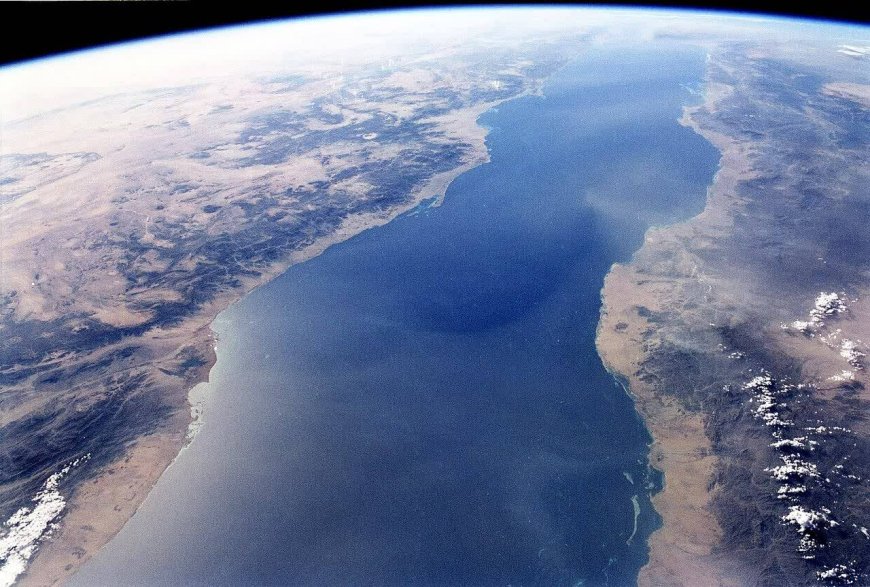Redrawing the Economic Map: The Shifting Trade Landscape in the Wake of Red Sea Conflict
Over the past few weeks, as the Israeli regime's brutal attacks on the Gaza Strip have escalated, the Palestinians have turned to various Arab countries for assistance. Among these nations, Yemen has emerged as a key player, offering military support to Gaza by targeting vessels bound for Israel. This has put Israel in an untenable position, leading to a complete halt in its exports and imports through the Red Sea. In response, Israel has sought alternative land routes in collaboration with the United Arab Emirates (UAE), the Kingdom of Saudi Arabia (KSA), and Jordan.

However, these developments have triggered a chain of events that are rapidly heightening tensions in the Red Sea. Following the US and British joint military strikes against Yemen, the risks to transit cargo passing through the Bab-el-Mandeb Strait have significantly increased. It is worth noting that approximately 12% of global trade, amounting to an estimated one trillion dollars annually, traverses this geopolitically vital waterway.
As hostilities continue to increase across the Middle East, the rerouting of global cargo around Africa's Cape of Good Hope has resulted in trade delays and subsequently a surge in shipping costs, estimated to cost ships an additional one million dollars in fuel per trip.
Today, cargo insurance rates for Red Sea voyages have skyrocketed, rising from an average of 0.6% to 2% of cargo value. Insurers have also introduced war risk premiums, further compounding the costs of utilizing the Suez Canal route. This has led to a staggering 137% increase in shipping rates from North Asia to the East Coast of the United States, with a 40-foot container now costing $5,100. Similarly, rates on the West Coast of the United States have surged by 131% to $3,700. China, a major global economic force, also faces significant challenges due to disruptions in the Red Sea, with shipping costs to Europe doubling from $3,000 to approximately $7,000 since December 2023, posing a substantial threat to its export-led economy.
Meanwhile, it is the Zionist regime that has borne the brunt of this crisis. The complete cessation of its Red Sea trade has sent shipping companies scrambling to find alternative routes. One such route that has gained prominence is the recently established Dubai-Haifa land corridor, connecting the port of Jebel Ali in Dubai, United Arab Emirates, to the port of Haifa in Israel via roads passing through the KSA and Jordan.
This land corridor has swiftly become indispensable to Israel, particularly for the import and export of perishable goods, including fresh food products, as well as the expedited delivery of raw materials and other time-sensitive items to customers. According to a report by the Israeli news site Walla, two shipping companies, Trucknet of Israel and Pure Trans of the UAE, are currently operating transportations from Dubai to Haifa. During the trial phase in December, ten trucks successfully completed the journey.
Both companies assert that this new route will reduce shipping costs by over 80% compared to maritime shipping, as merchant ships opt for the longer African route to avoid the risk of Yemeni attacks. While the use of the Dubai-Haifa land corridor as an alternative to the Red Sea primarily benefits the UAE, other Persian Gulf countries involved in the project may also reap economic rewards. However, it is without a doubt that Israel stands as the primary beneficiary.
Traknet, an Israeli company, has been at the forefront of this endeavor, transporting goods such as food, plastic, chemicals, and electrical goods from the ports of the UAE and Bahrain, through the KSA and Jordan, ultimately to Israel and onward to Europe. This ambitious alternative has pushed companies to explore uncharted territories, as in recent weeks, Traknet has successfully transported cargoes from India, Thailand, South Korea, and China to Israel by trucks, with goods flowing in the opposite direction towards Asia.
Nevertheless, despite Israel's experimental implementation of this land route, it is unlikely that this corridor will surpass other established trade networks. The Suez Canal remains the world's most cost-effective route for transporting millions of barrels of oil, thousands of tons of LNG, and a wide array of goods. Trade volumes through this maritime corridor far exceed those of land routes. Hence, the importance of the Red Sea will continue to be paramount.
The ongoing conflict in the Red Sea not only disrupts global trade but also reveals the intricate geopolitical dynamics at play. As tensions mount and trade routes are redefined, the Israeli regime has no option but to navigate the complex web of alliances and interests to safeguard its precarious economic stability and security.













































